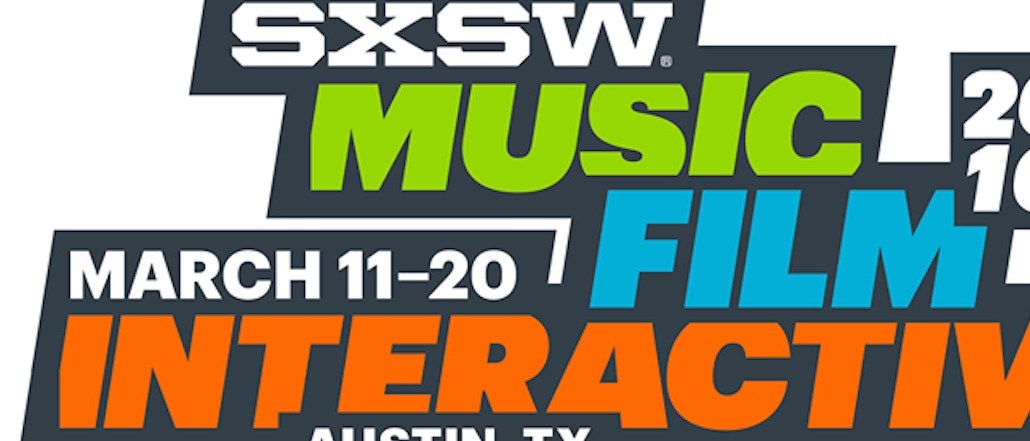Secure your place at the Digiday Media Buying Summit in Nashville, March 2-4

South by Southwest is under fire for caving to online harassment to cancel a panel about — you guess it — online harrassment.
Late Monday, SXSW organizers wrote in a post that “numerous threats of on-site violence” caused the organization to cancel two gaming-related panels at the tech-focused panel held annually each March in Austin, Texas. The panels were titled “SavePoint: A Discussion on the Gaming Community” and “Level Up: Overcoming Harassment in Games,” both focused on discussing issues reverberating from GamerGate, an online movement that targets and harasses mainly women in the gaming industry, without explicitly naming it.
Before being scrubbed from SXSW’s website, the description for the former was described as discussing online harassment “in gaming and geek culture, how to combat it, [and] how to design against it,” while the latter to “focus heavily on discussions regarding the current social/political landscape in the gaming community.”
Randi Harper, who was on the “Level Up” panel maintains that it was not related to GamerGate, tweeting “SXSW chose to view our panel as being GamerGate related. It wasn’t, unless you think GamerGate is about harassment.” In an interview with Recode, Harper said SXSW didn’t disclose what threats were even made against them and was surprised at SXSW not realizing the reaction it would receive.
The “SavePoint” panel, however, had members closely associated with the GamerGate movement prompting outage online last week when it was approved.
Motherboard published an email from a SXSW organizer from a concerned woman who has been a target of GamerGate’s bullying tactics, telling her that spectacle is meant to showcase a “very diverse range of ideas and opinions” and that if everyone shared the same viewpoint, that would make for a pretty boring event.”
Perry Jones, the moderator of “SavePoint,” told Motherboard that the panel will take a “neutral stance” on GamerGate, saying it “won’t let things get out of hand.”
Backlash against SXSW has been swift and strong, especially sine the ever-growing event has become a corporate behemoth that has lots its way since launching in 1986 as a event focused on local music. Last year, SXSW Interactive drew 33,000 people, along with McDonald’s, CapitalOne and Bud Light. Like all events that grow big, there is a palpable sense of “SXSW fatigue.”
That’s probably why many were ready to pounce on the misstep. BuzzFeed said it felt “compelled to withdraw” its participation from the event because of the conference’s handling of the issue. Anil Dash, a tech entrepreneur with a large Twitter, blasted SXSW last night:
This is the wrong call, @sxsw. You should reach out to your community if you need help solving this. But do fix it. https://t.co/cgMacC4fuZ
— Anil Dash (@anildash) October 27, 2015
I don’t envy the position @sxsw is in. @Hugh_W_Forrest you are a good guy in a tough spot. But you made the wrong call. It’s heartbreaking. — Anil Dash (@anildash) October 27, 2015
That sentiment is being echoed throughout Twitter, shaming SXSW:
I agree with the people saying @SXSW has made a mistake here. This is not a “two sides” situation. You have criminal harassers and victims.
— Brianna Wu (@Spacekatgal) October 26, 2015
“Why We Canceled Two Panels For SXSW 2016” — huge mistake that will generate long-term blowback. https://t.co/58osQXllDg
— Dan Gillmor (@dangillmor) October 27, 2015
This doesn’t go far enough. They should also cancel SxSW. https://t.co/qhVs73L5Oj
— Fall Gourd (@ftrain) October 26, 2015
sxsw is trash and always has been trash but one thing i DONT want to see is people pretending like the threats to SXSW aren’t real
— Shanley (@shanley) October 27, 2015
I withdrew from SXSW a couple years ago and haven’t looked back, fwiw.
— Adam Schweigert (@aschweig) October 27, 2015
Salon called the move “cowardice,” writing:
What I have a pretty serious problem with, however, is this ludicrous charade of acting as if there are two sides to every story. Actually, if one of them is wrong, no, there are not. You don’t get to “debate” climate change or evolution. And you shouldn’t get to cancel a panel on “how to create online communities that are moving away from harassment” because of threats of violence and not issue a goddamn apology. You shouldn’t get to ignore that it is unacceptable that the bullies and the trolls and deeply scary, messed up voices are the loudest. You shouldn’t bloviate about a “big tent” when too many women are genuinely afraid, and too many more have come to a grudging acceptance that the price of being female and having opinions is daily degrading commentary. And SXSW’s response is so cowardly and so transparently butt covering that I can be nothing but disgusted.
SXSW’s official Twitter account has not tweeted since the announcement.
More in Marketing

Thrive Market’s Amina Pasha believes brands that focus on trust will win in an AI-first world
Amina Pasha, CMO at Thrive Market, believes building trust can help brands differentiate themselves.

Despite flight to fame, celeb talent isn’t as sure a bet as CMOs think
Brands are leaning more heavily on celebrity talent in advertising. Marketers see guaranteed wins in working with big names, but there are hidden risks.

With AI backlash building, marketers reconsider their approach
With AI hype giving way to skepticism, advertisers are reassessing how the technology fits into their workflows and brand positioning.





